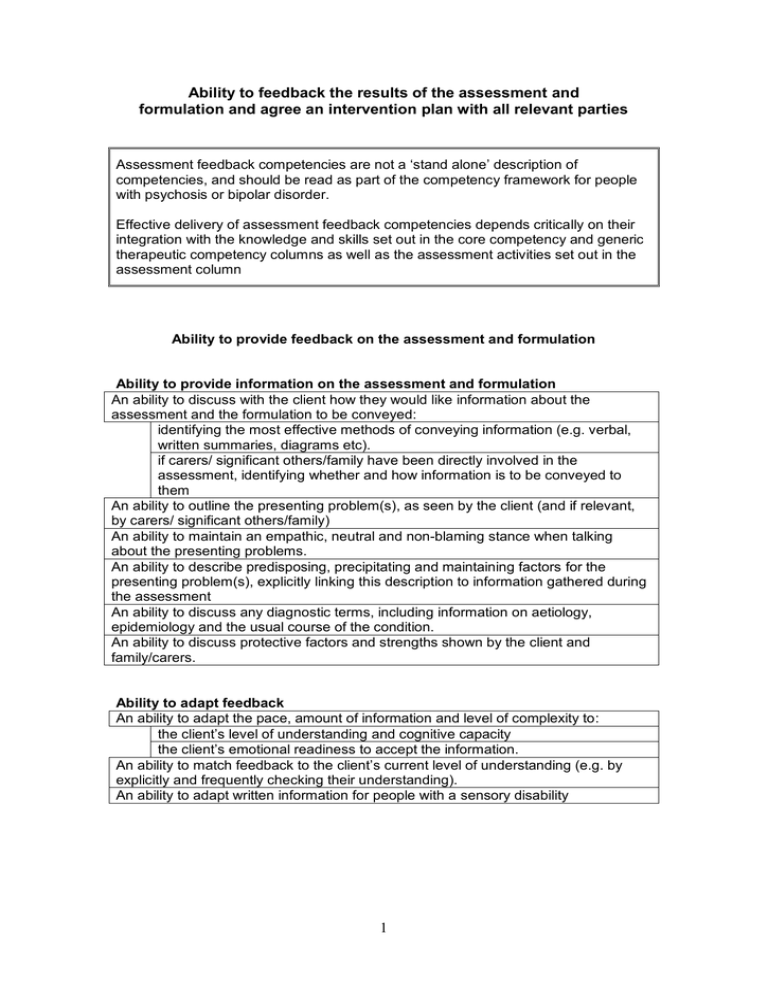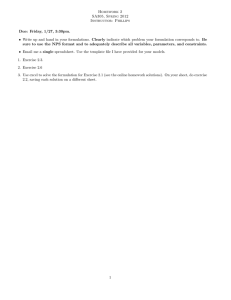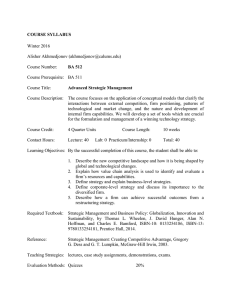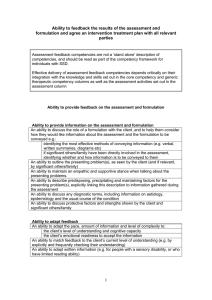Ability to feedback the results of the assessment and
advertisement

Ability to feedback the results of the assessment and formulation and agree an intervention plan with all relevant parties Assessment feedback competencies are not a ‘stand alone’ description of competencies, and should be read as part of the competency framework for people with psychosis or bipolar disorder. Effective delivery of assessment feedback competencies depends critically on their integration with the knowledge and skills set out in the core competency and generic therapeutic competency columns as well as the assessment activities set out in the assessment column Ability to provide feedback on the assessment and formulation Ability to provide information on the assessment and formulation An ability to discuss with the client how they would like information about the assessment and the formulation to be conveyed: identifying the most effective methods of conveying information (e.g. verbal, written summaries, diagrams etc). if carers/ significant others/family have been directly involved in the assessment, identifying whether and how information is to be conveyed to them An ability to outline the presenting problem(s), as seen by the client (and if relevant, by carers/ significant others/family) An ability to maintain an empathic, neutral and non-blaming stance when talking about the presenting problems. An ability to describe predisposing, precipitating and maintaining factors for the presenting problem(s), explicitly linking this description to information gathered during the assessment An ability to discuss any diagnostic terms, including information on aetiology, epidemiology and the usual course of the condition. An ability to discuss protective factors and strengths shown by the client and family/carers. Ability to adapt feedback An ability to adapt the pace, amount of information and level of complexity to: the client’s level of understanding and cognitive capacity the client’s emotional readiness to accept the information. An ability to match feedback to the client’s current level of understanding (e.g. by explicitly and frequently checking their understanding). An ability to adapt written information for people with a sensory disability 1 Ability to seek the views of the client and relevant others An ability to check regularly that the client (and where relevant significant others/carers/family) understand what is being said to them, and seeking their viewpoint regarding the information being conveyed. An ability to ensure that sessions are structured so as to allow time for questions or comments. An ability to help the client (and where relevant significant others/carers/family feel comfortable and confident to ask questions (e.g. by responding positively to questions, validating the appropriateness of questions, or actively prompting for questions). An ability to provide answers to questions in an honest and straightforward manner: an ability for the therapist to be clear when they need more information in order to answer questions, and to seek this information from an appropriate authority or source. Ability to work towards and negotiate an agreed formulation An ability to identify and to consider the reasons for any significant differences between the client’s and the clinician’s view of a diagnosis or formulation, including whether: the assessment has fully explored and taken into account the client’s/ carer’s beliefs about the causes of their presenting difficulties the assessment and formulation has taken into account the social and cultural context and its influence on the client’s/ family’s belief system. information has been clearly explained in a sensitive non-blaming manner that highlights the client’s strengths as well as difficulties. the links between contextual factors and the client’s behaviour have been made clear. there are factors in the client’s presentation and history that may make it less likely that they would agree with specific aspects of the formulation. Ability to plan an intervention that draws on the agreed formulation An ability to draw on the formulation constructed with the client (and where relevant significant others/carers/family) and which includes their ideas about how aspects of themselves, or their environment could change. Knowledge An ability to draw on knowledge of research into the efficacy of psychological and pharmacological interventions, and the possible side-effects or negative effects of interventions. An ability to draw on knowledge of the range of psychological interventions offered by the service and by other statutory and non-statutory agencies to whom the client could be referred. An ability to draw on knowledge of community resources and projects relevant to the promotion of mental health (e.g. drop-in centres, sports facilities etc). 2 Ability to identify potential interventions An ability to draw on the formulation and decisions regarding diagnosis to identify the indicated evidence-based interventions, including an ability to identify: “parallel” interventions are appropriate (e.g. offering individual CBT as well as family work) where interagency working is appropriate (e.g. with social services) Ability to promote informed choice and agree a plan for intervention An ability to provide information on the various options for intervention, including information on their likely efficacy An ability to discuss any negative effects or side-effects of the intervention(s) An ability to seek the client’s views on each intervention option. An ability to gauge client’s motivation and preference for particular intervention options. An ability to discuss whether the client anticipates any difficulties with engaging with an intervention(s), including their likely attendance . An ability to reach agreement on an appropriate intervention plan An ability to help the client identify goals for the intervention(s) that are: explicitly defined realistic (in the sense of being achievable) prioritised, usually starting with problems/ areas of functioning most likely to be amenable to change if significant others/ carers/ family are directly involved, an ability to identify goals that are shared by the client and their significant others/ carers/family, and to identify any areas where they have different goals An ability to reach agreement on the sequencing and timing of intervention(s) An ability to plan the length of the intervention and/or to set a review date An ability to include evaluation procedures in the intervention plan, for example: an ability to record the client’s identified goals for an intervention(s), with the aim of evaluating whether they have been met by review dates or at the end of the intervention. an ability to identify suitable pre- and post-intervention measures and any arrangements required for their administration. 3





